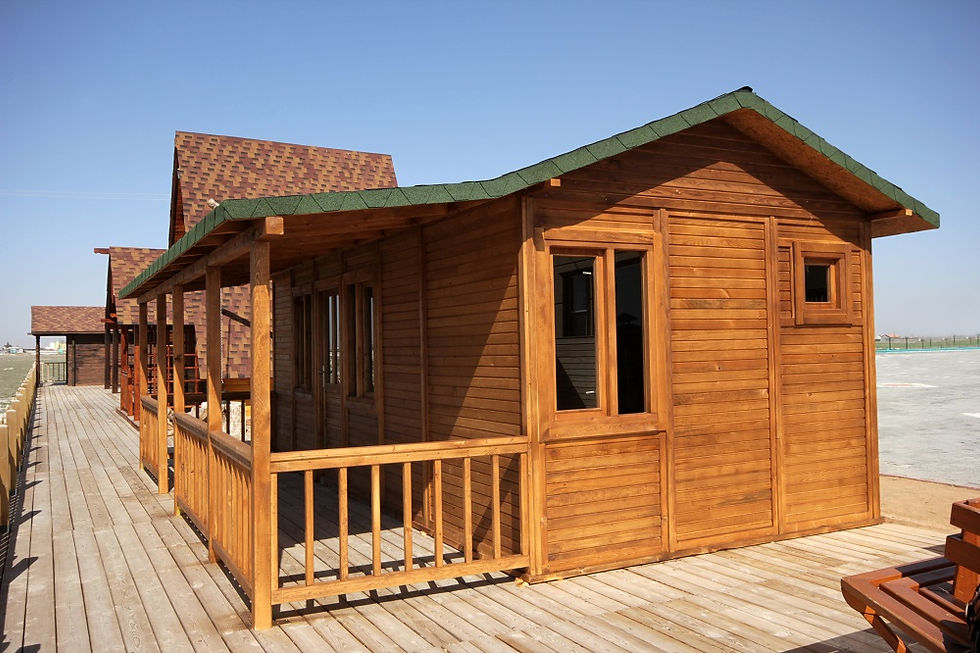Deciphering The Maze: Exploring Legal And Regulatory Insights Of Auxiliary Dwellings
- Ashley Kinsela
- Feb 5, 2025
- 3 min read

Ah! The joys and complexities of owning a slice of the earth, be it a modest two-bedroom house or a sprawling family estate. One aspect of this thrilling journey is taking advantage of auxiliary dwellings – an increasingly popular trend in modern real estate. But what are auxiliary dwellings, really? And why are they a big deal? And just before you adorn the homeowner cap and jump aboard this appealing bandwagon, have you considered the legal and regulatory aspects surrounding auxiliary dwellings?
These are thought-provoking queries, aren't they? While the terms and concepts might seem daunting, determining the legalities and regulations attached to auxiliary dwellings is an insurmountable but necessary pursuit for new and seasoned homeowners alike. So, ready for a liberating yet deep dive into the intricate nitty-gritty that governs auxiliary dwelling units?
Unfolding The 'Auxiliary Dwelling' Concept
Let's uncover the basics first. You may be wondering, "What exactly is an auxiliary dwelling?" Also known as granny flats, mother-in-law suites, or guest houses, these are ancillary residential structures detached from primary homes but located on the same property. They can be built for various reasons, ranging from accommodating aging parents, grown children, or tenants, to providing additional recreational or workspace. While their potential is undeniable, building an auxiliary dwelling involves a multitude of factors, the foremost being grappling with legal and regulatory requirements.
Walking Through The Legal And Regulatory Labyrinth
Generally, homeowners must meet certain zoning ordinances, building codes, and regulatory standards to construct an auxiliary dwelling. However, these laws vary from place to place. You could encounter restrictions on the dwelling's size, layout, parking area, and its distance from the main house. It's a complex path inviting careful navigation.
Warranting Proper Permits

Securing proper permits before constructing an auxiliary dwelling is a no-brainer. Failure to do so could invite legal complications and hefty penalties, casting an unwarranted shadow over your dream project.
Weighing The Pros And Cons
The idea of auxiliary dwellings seems interesting and lucrative. However, it's wise to weigh their pros and cons beforehand. On the plus side, they add to your property's value and generate extra income through rentals. Conversely, they could increase property tax and make you responsible for compliance with rental laws, among other issues.
Monitoring Reformative Legislation
Stay updated with evolving legislation around auxiliary dwellings. Some regions are easing restrictions to accommodate urban growth and affordable housing. Conversely, other locales may uphold rigid controls due to community concerns.
Seeking Expert Guidance
Lawyers, architects, regulatory experts, real estate advisors; their advice can shed light on legal and regulatory aspects, reducing the risk of unplanned setbacks during construction. Involving professionals doesn’t strip away your project's thrill; it simplifies the journey.
Conclusion
The legal maze of auxiliary dwellings is like a mind-bending puzzle. Every corner is seemingly fraught with surprises, some easy to navigate while others require thoughtful integration of knowledge, resources, or professionals. It might seem an intricate bend on the path to your dream home, but with careful steps, it’s no more than a natural progression to amplifying the value, versatility, and utility of your home. After all, isn’t diversification the spice of life?
Let’s remember, the road to real estate success isn't paved solely with dollar bills. It's also entrenched with sound knowledge, perseverance, and expert advice, especially when the path is as elusive as the legal and regulatory aspects of auxiliary dwellings. So, tread carefully but confidently, home-owners!








Comments